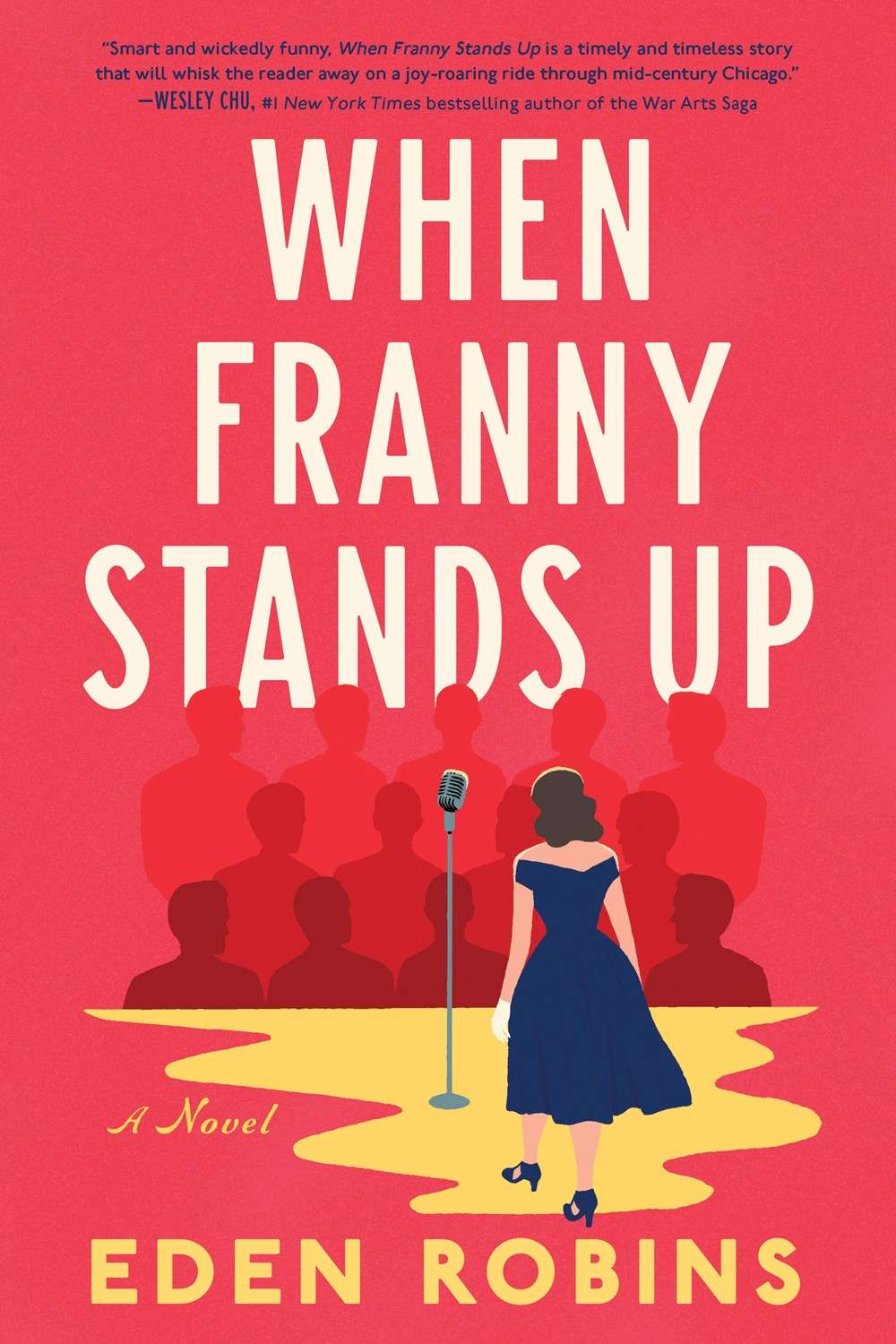I’ll be honest – I almost didn’t commit to this book. It seemed too close to Amazon Prime’s delightful series The Marvelous Mrs. Maisel: in the 1950s a young, urban Jewish woman unexpectedly finds her niche in the male-drenched stand-up comedy scene, with hilarious and poignant results. But luckily, I persevered and was delighted to find a completely different story that stands just fine on its own.
It’s 1951, and Franny Steinberg is living comfortably with her parents and older brother in a toney, Irish Catholic suburb of Chicago. Their Jewish family is benignly tolerated there – a lot more than the black family who has just moved into the house across the street. But while Franny’s sheltered life may seem comfortable, there are stresses bubbling below the surface, such as the changes in her brother when he came back from the war, her resistance to finding some nice, young man to settle down with – and what happened on her 21st birthday that she staunchly refuses to confront.
Franny herself has a wicked wit, and it’s not uncommon for her lack of control to get her into trouble, hurting feelings, setting up barriers, and masking uncomfortable emotions. But her wit is also her strongest survival technique in a world that wants to slot her into roles in which she simply does not fit.
It’s the night before her best friend’s wedding that changes her life. The bridal party heads out for a night at the Blue Moon, a woman’s-only comedy club with mob associations which is the birthplace of the Showstopper – a unique magical experience that select comics can bestow on their audience. Some Showstoppers are benign, others are quite powerful – but only women comics can evoke them, and only women in the audience can experience them. The Showstopper that night, provided by the legendary Boopsie Baxter, affects Franny in a totally unexpected way. Suddenly, new possibilities open to her, including one where her big mouth and acerbic wit are a plus – but will she be able to break barriers and claim her own Showstopper?
If this were all the book was, it would be a fun yet forgettable read. But Eden Robins, in her debut effort no less, subtly adds underpinnings to Franny’s story which may not appear paramount, but are a constant underlying current that gives the story depth and weight. In 1951, issues such as PSTD, toxic masculinity, social privilege, rape culture, gender dysphoria, and systemic (even overt) racism were not identified, but they still existed. Watching Franny navigate these currents without understanding them is just as powerful as the main story – even more so, in my opinion.
Along with this underlying depth of emotional investment comes a depth in the characters in this book; not only Franny herself but the outlier characters as well. Franny’s family, her friends, and the gals at the Blue Moon, all are more than simple face values. Even the maddening cluelessness of many of the male characters in When Franny Stands Up acts as a catalyst to the story, rather than the eye-rolling aside that is a more common treatment of such attitudes.
All this buoys the insouciance – bawdiness, even – that is the pure pleasure of When Franny Stands Up. Just like a good comedy routine, which can find hilarity even as it cuts, this book ultimately delights beyond the seriousness that underlies the story. Although Franny belongs to another time, she is someone in whom we can believe, someone we know, perhaps even someone we recognize in ourselves. She’s hilarious, especially inside her own head. She’s fun. And she’s on track to finding herself, despite – and even spurred by – the obstacles in front of her, those that are obvious and those she doesn’t even know how to define. I mean, with all that going on for her – what’s not to love?
~ Sharon Browning


